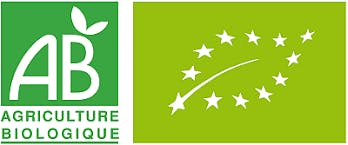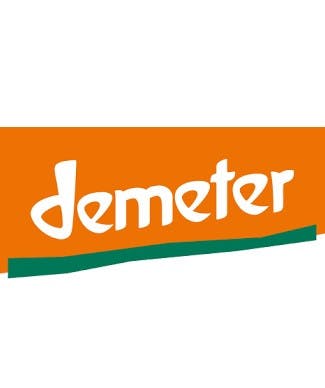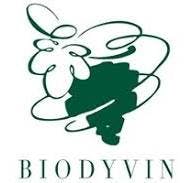
What are the differences between natural, biodynamic and organic wines?
Organic wine, biodynamic wine, natural wine: not always easy to understand
The labels on wine bottles are becoming more and more numerous, but not always understood by everyone. Let's take a look at the different labels together. From Vin Bio, to Vin Nature, to Vin Biodynamique, each has its own set of specifications for respecting the environment and biodiversity.
Today, this is a commitment on the part of winegrowers. This choice is a long process, in which the winemakers make changes in the way they vinify their vines. They are responding to a growing demand for more ethical, environmentally-friendly consumption.
However, we often hear the term "conventional wine" used. This method has no label, but remains the most classic. It is still used by winegrowers in France, and accepts all chemical products, fertilizers and inputs in the vinification process.
Vin Bio, Vin Biodynamique, Vin Nature and HVE: which are labels?
As a general rule, a label is an attestation issued by a certified body guaranteeing that a product complies with specific standards set out in specifications. This is a crucial indicator for wine, as labels adhere to precise specifications. As such, it enables consumers to identify the product.
Organic and biodynamic wines are labelled, as is HVE. However, the Nature method is not certified. See below for explanations of the different labels and their distinctions.
What isorganic wine?
Organic wine certification guarantees that no chemical pesticides or synthetic fertilizers are used in the vineyard, thus promoting biodiversity and preserving soil health.
Organic wines include 2 labels:
- AB is a label issued by the French Ministry of Agriculture. It manages sustainable agriculture. It certifies that 95% of the ingredients are organically grown, and that no chemicals are used. This certification is valid for European countries.

- Ecocert is delivered by the Ecocert Group. It limits the use of sulfur, but authorizes certain inputs from organic farming. It is recognized worldwide, but independent.

What isBiodynamic Wine?
Biodynamic viticulture is based on agricultural practices that integrate the cycle of life, including the lunar calendar. The vine is regarded as a living ecosystem, and seeks to establish a natural balance between the vine and its environment.
This new method of cultivation was born of the philosopher Rudolf Steiner, a man convinced of the benefits of cosmic influences, the Moon and the planets on plants, including vines.
2 labels available for biodynamic practices:
- Demeter is a label awarded by "Demeter", a private, independent label. To obtain it, you need to meet the "AB" specifications, with SO2 levels well below those of BIO.

- Biodyvin is supplied by the Syndicat International des Vignerons en Culture Bio-Dynamique (SIVCBD). You need to be certified AB and respect the SO2 limits in their specifications.

What isHVE (Haute Valeur Environnementale)?
HVE certification brings together winegrowing practices that respect the environment. Many winegrowers have voluntarily chosen to follow this approach to guarantee the sustainability of their production.
There is a single HVE label, issued by the French Ministry of Agriculture, which guarantees that the operation preserves ecosystems and limits its impact on the environment.

What isVin Nature?
The natural wine movement focuses on minimizing human intervention both in the vineyard and in the cellar. This practice is carried out with organic or biodynamic grapes and is vinified with indigenous yeasts, without inputs and without sulfites, i.e. without the use of chemical fertilizers.
There is no label for this wine, which is more a matter of individual interpretation. However, there is a charter of commitment called "vin méthode nature" created by a union. To adhere to this charter, winegrowers must have less than 30mg/L total or no added sulfites, and 100% of the grapes must come from the "AB" label.
Where can I find the best selection of organic wines?
There are many wine e-commerce sites, but it's often difficult to find a varied selection to meet everyone's expectations. On this site, you'll be guided in your choice by color, vintage and flavor. ????
Vins Etonnants
Which e-commerce site to choose your Vin Nature?
Looking for natural wine nuggets that have been tried and tested? This site will help you find the one that will delight you. With a wide variety of choices, colors and vintages. ????
Petites Caves
On thelookout for the best place for a Biodynamic Wine?
You've been wanting to drink biodynamic wines, but don't know where to find them... Here you'll find a fine selection, with a variety of wines from winemakers who take natural cycles into account when vinifying their grapes. ????
Les Grappes
Organic and Biodynamic wines: the differences between wines with no added sulfites and wines with highly-reasoned sulfites
Wines with no added sulfites mean that sulfites are naturally present in the wine. This stabilizes the wine. This appointment is made in order to protect our environment and take care of our health.
Highly reasoned sulfite wines are even more reduced in natural sulfite, thanks to more stringent controls. A winemaker's commitment to nature and our health.
Conventional wine: the classic method, authorizing the use of chemicals
The "Vin Conventionnel" method is the most traditional and common. It is tending to be used less and less, with a view to a new, more sustainable way of consuming wine that protects our ecosystem. This practice, adopted by many winegrowers in France, authorizes the use of all chemical products: fertilizers and inputs in wine-making.
So whether you're captivated by more responsible farming, concerned about your health or simply looking for wines that fully reflect their terroir, there are labels to suit your values and preferences. Certifications that emphasize respect for the environment. By choosing this, you can not only enjoy quality wines, but also support viticultural practices that preserve our planet for future generations. Health and eco-responsibility!






